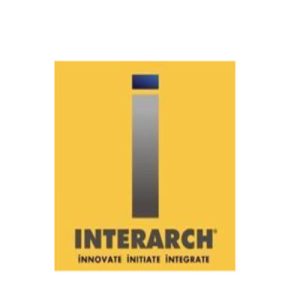
Interarch Building Products IPO
ClosedAlready have an account? Apply now
Schedule of Interarch Building Products
| Issue open date | 19 Aug 2024 |
| Issue close date | 21 Aug 2024 |
| UPI mandate deadline | 21 Aug 2024 (5 PM) |
| Allotment finalization | 22 Aug 2024 |
| Refund initiation | 23 Aug 2024 |
| Share credit | 23 Aug 2024 |
| Listing date | 26 Aug 2024 |
| Mandate end date | 05 Sep 2024 |
| Lock-in end date for anchor investors (50%) | 21 Sep 2024 |
| Lock-in end date for anchor investors (remaining) | 21 Nov 2024 |
Note: The schedule is tentative. The anchor lock-in period ends 30 days after the actual allotment date for 50% of the shares and 90 days after for the remaining portion. The allotment status can be checked on the registrar's website and the exchange website.
About Interarch Building Products
Incorporated in 1983, Interarch Building Products is a turnkey pre-engineered steel construction solution provider in India with integrated facilities for design and engineering, manufacturing, and on-site project management capabilities for the installation and erection of pre-engineered steel buildings (PEB). The company offers PEBs by way of (a) pre-engineered steel building contracts (PEB Contracts”) and (b) the sale of pre-engineered steel building materials (PEB Sales). The company owns brands such as TRAC, TRACDEK, TRACDEK Bold-Rib, and Interarch Life. The company primarily manufactures its products in-house at our four manufacturing facilities with two Manufacturing Facilities in Tamil Nadu and two in Uttarakhand. The company’s key clientele includes Grasim Industries, Berger Paints, an AC manufacturer, Timken India, Addverb Technologies, etc.
Financials of Interarch Building Products
Issue size
| Funds Raised in the IPO | Amount |
| Overall | ₹600.29 crores |
| Fresh Issue | ₹200 crores |
| Offer for sale | ₹400.29 crores |
Utilisation of proceeds
| Purpose | INR crores (%) |
| Capital Expenditure | 58.53 (29.3%) |
| Capital Expenditure (Manufacturing facility) | 19.25 (9.63%) |
| Working capital requirements | 55 (27.5%) |
| Investment in IT assets | 11.39 (5.7%) |
| General corporate purposes | 50 (25%) |
| Others | 5.74 (2.87%) |
Strengths
- Diverse base and long-standing relationships with customers: The company’s diverse customer base includes clients from (i) industrial/ manufacturing construction, (ii) infrastructure, and (iii) building (residential, commercial, and non-commercial) like warehouses, bridges, dams, etc., and building construction includes houses, residential towers, etc., as well as non-commercial buildings like hospitals, educational institutions, as well as buildings for commercial use such as offices, retail malls, etc.
- Established brand presence in India’s growing pre-engineered steel building industry: The company has the second largest aggregate installed capacity of 141,000 MTPA and a market share of 6.5% in terms of operating income in FY 2024 among integrated PEB players in India. From FY15 to FY24, the company completed the execution of 677 PEB contracts, demonstrating an extensive track record in the PEB industry.
- Integrated manufacturing operations and sales and marketing capabilities: The company’s manufacturing operations are vertically integrated to a significant extent, enabling presence across the product lifecycle of PEBs, from estimation, designing, engineering, and fabrication of PEBs in completely knock-down conditions to supply and on-site project management of the installation and erection of PEBs at the site of the customer.
Risks
- Dependence on third parties: The company outsources certain business operations such as security guard services and other manufacturing processes to third parties. Any failure by such third parties to deliver their services could adversely impact the business.
- Dependence on a single business segment: The company derives nearly 86% of its revenue from operations from contracts with customers for supplying PEBs on a turn-key basis. Any loss or significant reduction in this business segment could have a material adverse effect on the results of operations, financial condition, and cash flows.
- Reliance on repeat orders: The company derives nearly 59% of its revenue from repeat orders. Any reduction in business from these repeat orders or any other major clients could negatively impact revenue and profitability.